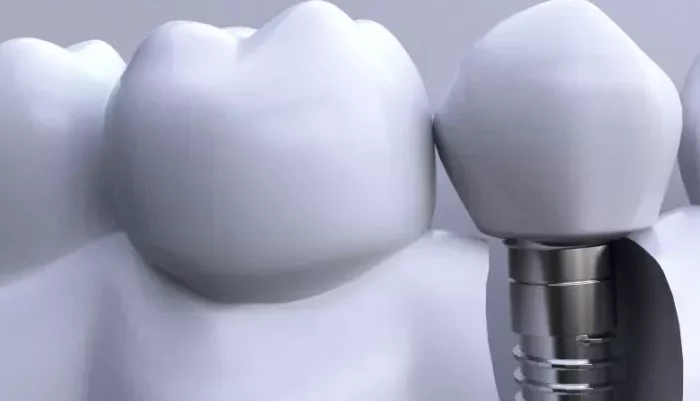The question of how long after extraction one can undergo dental implant surgery is a topic of great concern, and the answer is not fixed but depends on the specific circumstances of each patient. Below, we will provide a detailed interpretation and popular science explanation of the timing of dental implants after extraction from a professional perspective.
Overview of Dental Implant Timing
Dental implants are an advanced method of tooth restoration that involves implanting artificial tooth roots into the alveolar bone and then attaching a crown to restore chewing function and aesthetics. The timing of dental implants after extraction depends mainly on the location of the extracted tooth, the condition of the tooth before extraction, the presence of inflammation at the apex, and the patient’s overall oral health status.
Classification of Dental Implant Timing
Immediate Implantation
Definition: Dental implants are placed immediately after tooth extraction.
Applicable Situations: Mainly suitable for anterior teeth in the maxilla with good height, thickness, and density of the alveolar bone. If the surrounding bone is intact, immediate implantation is generally recommended.
Advantages: Reduces the number of surgeries and shortens the treatment period.
Notes: Immediate implantation requires high-quality alveolar bone and surgical skills, necessitating thorough preoperative assessment and preparation.
Early Implantation
Definition: Dental implants are placed 1-2 months after tooth extraction.
Applicable Situations: Suitable for patients with good alveolar bone conditions but not suitable for immediate implantation.
Advantages: Compared to immediate implantation, early implantation has lower risks and can restore tooth function earlier.
Notes: Implantation should be performed after the soft tissue of the extraction socket has healed but before the bone has completely remodeled.
Conventional Implantation
Definition: Dental implants are placed 3-6 months after tooth extraction.
Applicable Situations: Suitable for most patients, especially in the posterior region.
Advantages: At this time, the soft tissue of the extraction socket has healed, and the alveolar socket changes are basically stable, resulting in a higher success rate for implants.
Notes: Sufficient time is needed after tooth extraction to allow the bone tissue of the extraction socket to fully heal and remodel.
Delayed Implantation
Definition: Dental implants are placed more than 6 months after tooth extraction.
Applicable Situations: Suitable for patients with significant inflammation or cysts at the apex before extraction or poor bone tissue healing after extraction.
Advantages: Ensures that the bone tissue of the extraction socket has fully healed and remodeled, reducing the risk of implant failure.
Notes: A longer waiting period after tooth extraction is required to allow the bone tissue to fully recover.
Considerations for Choosing the Timing of Dental Implants
Tooth Location
Anterior Region: Due to the high aesthetic and chewing function requirements of the anterior region, immediate or early implantation is more favorable.
Posterior Region: The chewing function of the posterior region is more important, and the bone tissue is relatively thicker, making conventional or delayed implantation more suitable.
Condition of the Tooth Before Extraction
If there is significant inflammation or a cyst at the apex before extraction, implantation should be delayed until the inflammation resolves and the cyst disappears.
If there is insufficient bone volume before extraction, bone grafting may be required before implantation.
Patient’s Overall Oral Health Status
If the patient has severe periodontal disease or systemic diseases such as diabetes or hypertension, implantation should be delayed until the diseases are controlled.
If the patient has multiple missing teeth, the overall restoration plan should be considered to choose the appropriate timing for implantation.
Preparation and Precautions Before Dental Implants
Preoperative Assessment
A comprehensive oral examination, including panoramic radiographs, CBCT, and other imaging studies, should be conducted to assess the patient’s oral health status and bone volume.
The patient’s overall health status, including any chronic diseases or allergy history, should be understood.
Preoperative Preparation
If the patient has periodontal disease, periodontal treatment should be performed before surgery to ensure that there is no inflammation in the oral cavity.
If bone grafting is required, the procedure should be performed before implantation, and implantation should be delayed until the bone tissue has healed.
Postoperative Care
After implant surgery, the patient should follow the doctor’s instructions, take antibiotics and anti-inflammatory drugs as scheduled to prevent infection.
Oral hygiene should be maintained, and chewing on the surgical side should be avoided to prevent wound disruption.
Regular follow-up visits should be scheduled to check the healing of the implant and adjust the treatment plan as needed.
Maintenance and Care After Dental Implants
Regular Follow-Up Visits
Regular follow-up visits are necessary after dental implants to check the stability of the implant and the healing of the surrounding bone tissue.
If the implant becomes loose or the surrounding bone tissue is resorbed, prompt treatment is required.
Daily Cleaning
Oral hygiene should be maintained, with brushing at least twice a day and the use of dental floss and mouthwash to clean interdental spaces and the oral cavity.
Avoid using toothbrushes that are too hard or too soft to prevent damage to the implant and surrounding soft tissues.
Dietary Considerations
After dental implants, hard, sticky, or stimulating foods should be avoided to prevent damage to the stability of the implant and the healing of the surrounding soft tissues.
Foods rich in calcium and vitamins, such as milk, eggs, and vegetables, can be consumed to promote bone tissue healing.
Conclusion
The question of how long after extraction one can undergo dental implant surgery is complex and depends on the specific circumstances of each patient. When choosing the timing of implantation, factors such as tooth location, the condition of the tooth before extraction, the patient’s overall oral health status, and the doctor’s advice should be comprehensively considered. Additionally, thorough preparation and care before and after dental implants are essential to ensure the success of the implant surgery and the long-term stability of the implant. If you have missing teeth, it is recommended to consult a professional oral surgeon promptly to develop a suitable implant plan based on your specific circumstances.
Related topics:

